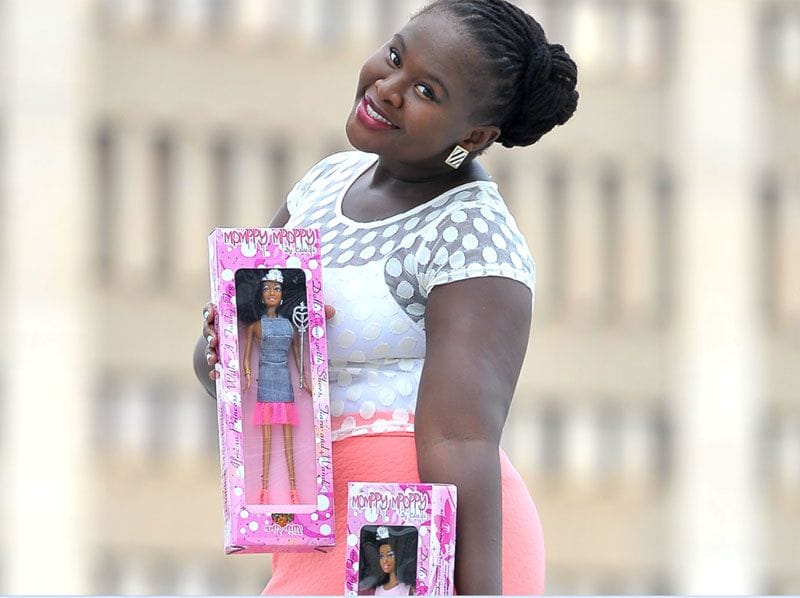South African Maite Makgoba (pictured) has added her name to the short list of dollmakers who are dedicated to making Black dolls for African children. In a recent interview, Makgoba shared that she is using her increasingly popular line, Momppy Mpoppy, to encourage self-esteem, reports the Guardian.
SEE ALSO: Successful Nigerian Entrepreneur Uses Twitter To Discover Best Talent
Keep Up With Face2Face Africa On Facebook!
With its Apartheid history, Black South African youth have long been inundated with White imagery.
Makgoba speaks to this reality, saying, “Dolls are often White, people in magazines are White, even in a country like South Africa where the majority are Black.
“Black children are confronted with growing up in a world that does not represent them, everything is skewed toward Whiteness.”
Therefore, through her Childish Trading and Manufacturing Company, Makgoba was inspired to create Momppy Mpoppy to fill the void and provide an alternative to the current Black dolls on the market, which she describes as “unattractive.”
“They were frumpy and unattractive, some in traditional attire. That is not the reality of today,” says Makgoba.
Makgoba hopes that her dolls will help African youth celebrate what they see in the mirror.
“This is more than just a business, we are creating awareness, that our dark skin and thick Afro hair are pretty as they are,” said Makgoba.
“We want kids to see beauty in Mpoppy, to see themselves while playing with her.”
Consequently, Makgoba takes great care to ensure that the darker-hued dolls are outfitted in style.
Inside the two-room warehouse, miniature pieces of clothing are sewn and pressed by hand.
Appearance is everything.Eye-catching ballerina skirts, denim pants and “on trend” jumpsuits with bright high heels are just some of the items in Momppy Mpoppy’s impressive wardrobe, with each doll costing R180 (£9).
Among the different Mpoppy outfits are Denim Dungaree Delicious, Rockstar Tutu, Mohawk Fro and Seshweshwe Fabulous.
To complete the experience, the company also makes matching clothes for girls who own the doll.
And customers — many of which are gained through social media — are taking notice.
Thirty-year-old Mother of two Nokuthula Maseko says she has “fallen in love with the unusual doll,” “I like the fact that the doll looks like my kids, in a world where the standards of beauty are often liked to Caucasian features,” said Maseko.
“This is a big social movement…it can help prevent body image insecurity among children.”
SEE ALSO: South African Artist Creates Masterpieces By Painting With Plastic













